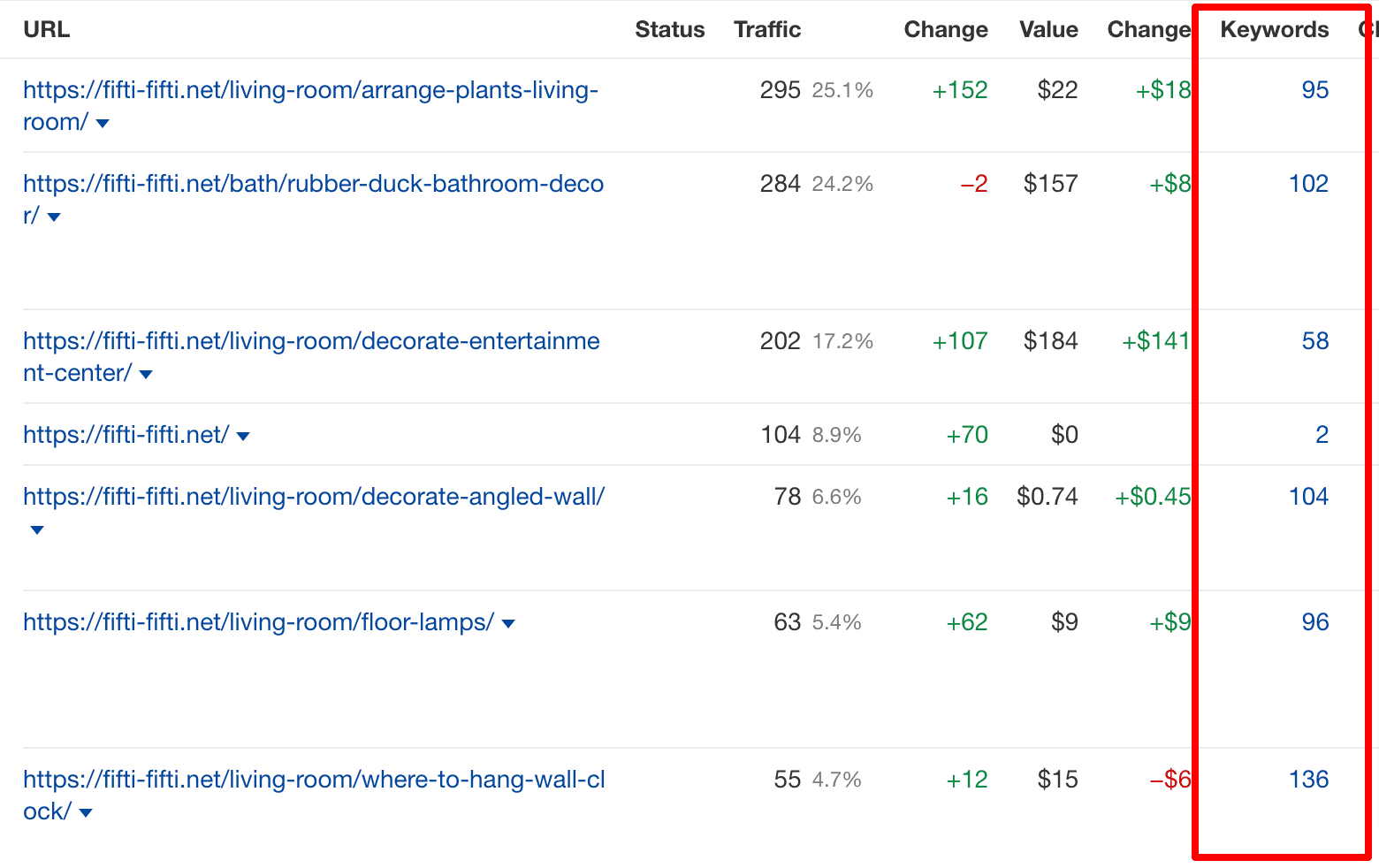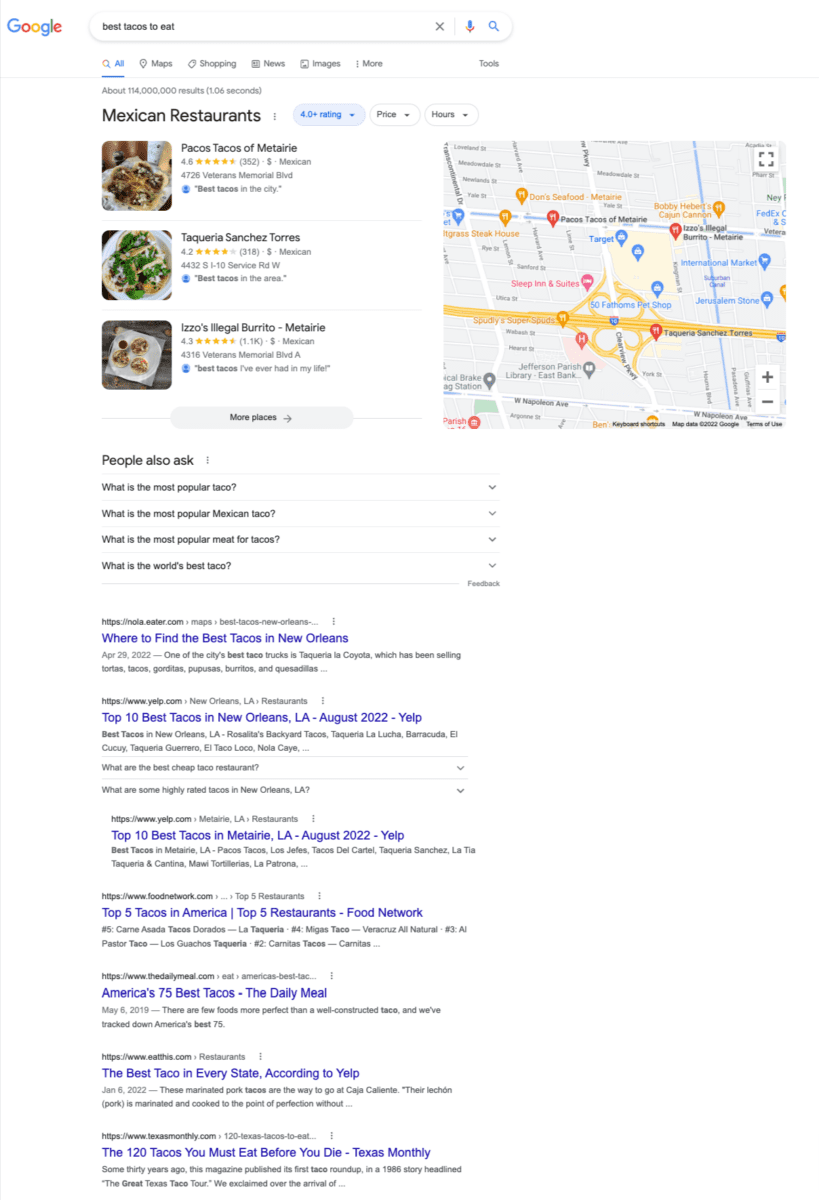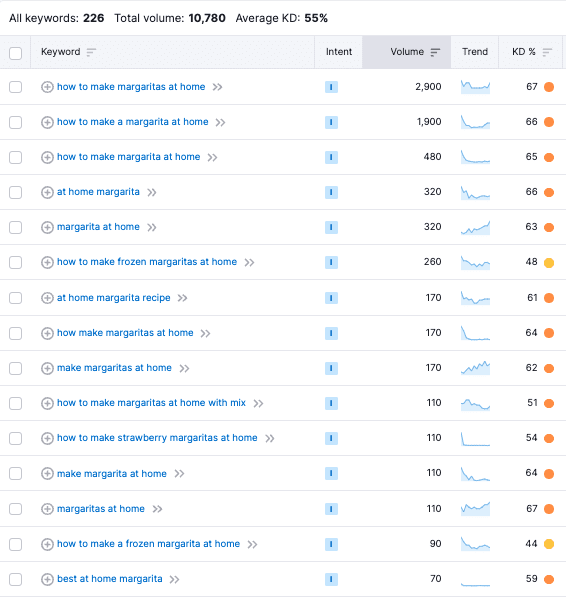How many SEO keywords should you target per page? This is a frequently asked question, and the answers have changed a bit over the years.
I see some SEO’s propose that you should only target one keyword per page. Is that best practice?
Let’s look at a project I’m working on and how many keywords a few of its pages rank for:

Two of these pages rank for almost 100 keywords each!
How is that possible?
Let’s take a quick walk down memory lane:
SEO Keyword Targeting in the Early 2000’s
In the early 2000s, Google’s search engine was still a wee baby. It didn’t quite understand natural language nor fully grasp synonyms. SEO best practice was to have a unique page for literally every keyword you wanted to rank for. Here’s what it might have looked like:
- dentist office
- dental professional
- affordable dentist
Each of these searches would *probably* have generated unique results, despite the fact that these are all essentially the same search. Or at minimum, the searcher intent is the same for each.
In 2000, an SEO may have created four unique pages for each of these keywords. And they were probably ranking for all of them, so they didn’t have to ask the question, “Should I go with SEO or Google Ads?”
SEO Keyword Targeting in 2022
Starting around 2010, Google began rolling out a number of semantic algorithm updates that helped their search engine better understand searcher intent. Search intent is a fancy phrase for “what is the searcher actually looking for?” Or, “What type of content should we show for this?”
Following more algorithm updates like Hummingbird in 2013, RankBrain in 2015, and BERT in 2019, Google now has a deep understanding of language.
Hummingbird was a big algorithm update that dropped in 2013. Google described it as a “complete overhaul of the core algorithm.” Hummingbird focused on matching search context to results, opposed to matching queries to keywords.
Next, Google rolled out RankBrain which worked even harder to determine true searcher intent.
So now in 2022, whether you search for “dentist office” or “dentist professional,” you’re going to get very similar results.
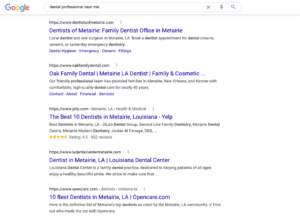
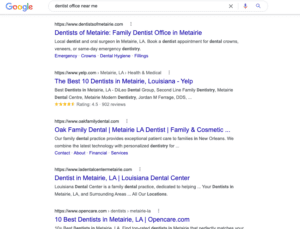
How Many Keywords Should You Target Per Page?
You should target between 1 and 10 (or more) SEO keywords per page depending on searcher intent, variation of the keyword, and how Google currently ranks similar page types.
Search Intent and Keyword Targeting
When considering how many keywords to target per page, you should strongly consider the intent.
Back to our dentist example, when someone searches for “dentist office” or “dentist professional,” we can assume the intent is the same: the searcher is looking for a local dentist. So when keyword mapping, you should map both keywords to the same page.
That said, there are scenarios where two searches are very similar, but the intent is different.
For example, let’s look at:
- how to make the best tacos
- best tacos to eat
These two searches contain a lot of the same words, but you would assume the first searcher is looking for recipes, while the second is probably looking for a list of best types of tacos or best places to get tacos nearby. These key phrases should be targeted with two separate pages.
How Does Google Treat the Keyword?
There are a lot of tools coming out that do a decent job of helping you decipher the intent of a search. But one of the best tools we have is Google itself.
Unsure whether someone who searches for “best tacos to eat” is looking for restaurants or recipes? See what Google shows you when you search it.
Google believes the searcher is looking for taco restaurants – either locally (hence the local pack) or nationwide.
So how does Google know? Their algorithm is constantly evaluating and testing user behavior. If they’re not spot on, they’ll likely get it corrected over time. So it’s important to re-evaluate your keyword targeting and mapping regularly – just in case collective intent of a phrase has shifted over time.
Step-by-Step Guide to Keyword Mapping & Targeting
This has all been theoretical, so let’s walk through a scenario step by step. Let’s say you’re doing SEO for a taco shop and are considering writing a blog post on making margaritas at home.
Step 1: Perform Your Keyword Research
We’re not going to go in-depth on keyword research, but here’s what I would recommend if you’re prepping for a blog post.
Use a keyword research tool like Ahrefs or SEMRush and plug in your overarching blog post topic into a suggestion generator. In this case: margaritas at home. I’m using SEMRush’s Keyword Magic Tool.
Step 2: Categorize Your Keywords Based on Intent
Now, you’ll look through all the variations of keywords you could be working with and categorize them based on intent. As mentioned above, one of the best ways to do this is to plug each key phrase into Google and see what types of results you get.
At first glance, I may have wondered whether some people were looking for recipes, while others were looking for margaritas in a can (or something similar). But after doing a little research, it appears Google shows the same types of results for each query.
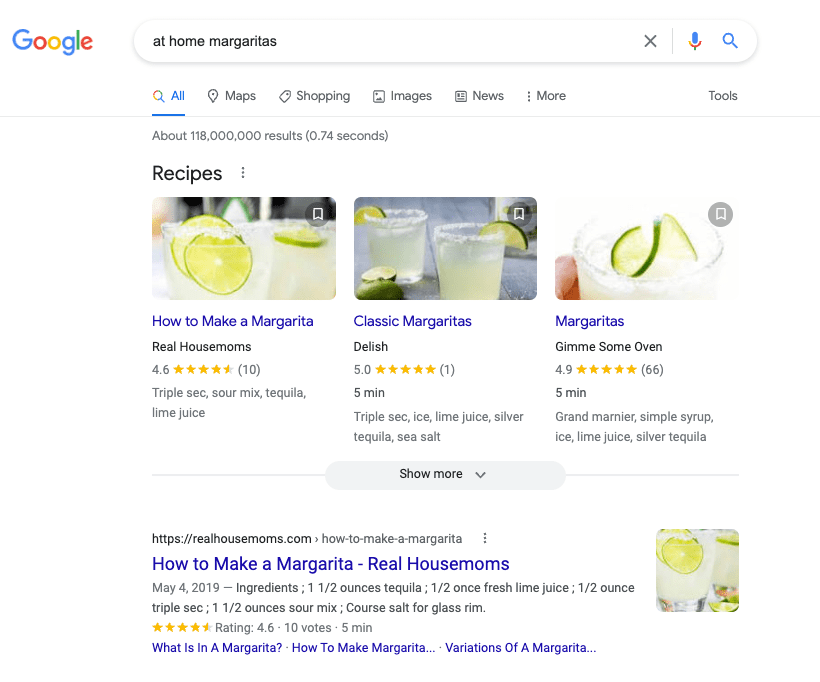
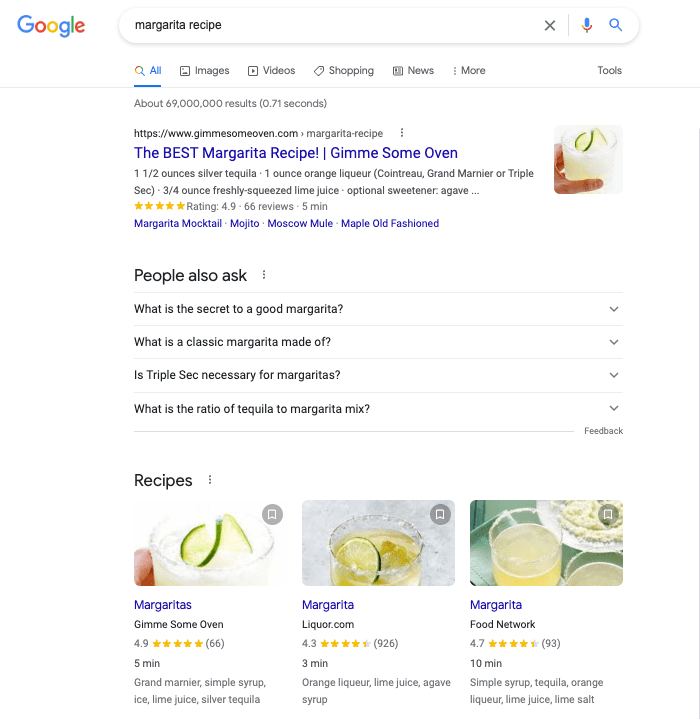
Step 3: Outline Your Post or Page
Once you’ve got a list (or lists) of keywords broken down by parent topic, you can start planning your post(s). If you did some intent research and found that indeed some of these phrases indicate recipes while others indicate pre-packaged margaritas, your best bet would be to write two separate articles.
In our case though, we’ll just be writing one blog post.
Within that single post though, we’ll want to cover multiple sub-topics based on our keyword research.
Our primary keyword would probably be “how to make margaritas at home,” but we would use headings to target some of those additional and supplemental keyword variations. We might create an outline that looks like this:
- Best At-Home Margarita Recipes
- Traditional Margarita Recipes
- Strawberry Margarita Recipes
- Frozen Margarita Recipes
- Best Types of Mix for At-Home Margaritas
- Best Tequilas for At-Home Margaritas
- 5 Tips for Making Margaritas At Home
This is a great blog post covering everything someone would want to know about making margaritas at home, and it would have the potential to rank for 10-20 different keywords.
Use Common Sense When Targeting Keywords
I hope this has been helpful, but at the end of the day, my best advice might be to just use common sense. Does it make sense to create separate pages for “dental office” and “dentist?” Would it make sense to create separate pages for “margarita recipe” and “making margaritas at home?”
Use your common sense, research your assumptions by using Google itself, and always be evaluating after you publish.


